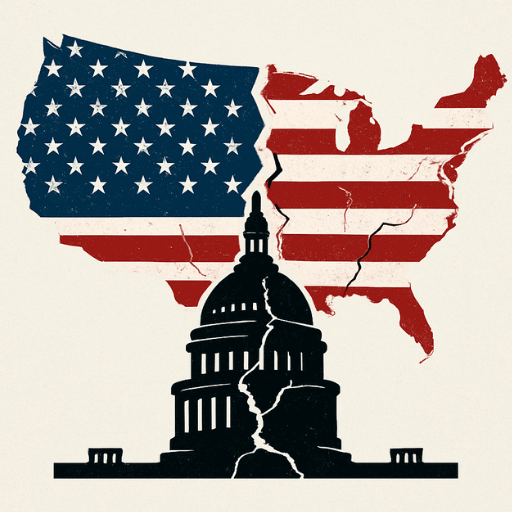New York Bar Council’s Troubling Punt on Emil Bove’s Misconduct Complaint
The New York Bar Council has referred allegations of unethical conduct against Emil Bove, a former Trump official, to the Department of Justice, raising concerns about accountability and the integrity of legal oversight.
In a surprising turn of events, the New York Bar Council has decided to refer allegations of unethical conduct against Emil Bove, Donald Trump’s former acting deputy attorney general, to the Department of Justice (DOJ). This decision has sparked significant debate regarding the accountability of legal professionals and the integrity of the legal system.
Background on Emil Bove
Emil Bove served as Donald Trump’s acting deputy attorney general and was previously one of Trump’s criminal defense attorneys. His recent actions in handling a public corruption case against New York City Mayor Eric Adams have raised eyebrows. Bove sought to dismiss the case against Adams, not due to a lack of evidence of wrongdoing, but rather to enable Adams to perform political favors for Trump, including supporting his immigration policies.
The Allegations
Multiple organizations filed complaints against Bove, citing his unethical conduct in attempting to dismiss the charges against Adams in exchange for political favors. The New York State Bar, which is responsible for investigating such complaints, was expected to take action. However, instead of conducting its own investigation, the Bar referred the matter to the DOJ’s Office of Professional Responsibility.
The Bar Council’s Decision
The decision to refer the case to the DOJ has been met with criticism. Observers have pointed out that it is illogical for the Bar Council to defer to the very entity that appointed Bove and allowed his alleged misconduct to occur. Critics argue that this move effectively absolves Bove of accountability and undermines the Bar’s responsibility to uphold ethical standards among attorneys.
Comparison to Other Investigative Practices
To illustrate the absurdity of this situation, commentators have drawn parallels to how police misconduct is typically handled. In cases of alleged excessive force, investigations are usually conducted by independent agencies to ensure impartiality. Referring such cases back to the police department would likely result in a lack of accountability, a scenario that mirrors the current situation with the DOJ.
The Implications of the Decision
The Bar Council’s choice to refer the case to the DOJ raises serious questions about the integrity of legal oversight in the current political climate. Critics argue that allowing an organization perceived as corrupt to investigate its own members is a recipe for failure. This decision reflects a broader concern about the erosion of ethical standards in the legal profession, particularly in politically charged environments.
Potential Remedies and Future Actions
As for remedies to this situation, the options appear limited. Each state bar operates under its own rules, and once a decision has been made to refer a case, it is unlikely that there is an appeals process for those who filed the complaints. The organizations that referred Bove’s conduct to the Bar, including members of Congress and advocacy groups, may find themselves without recourse.
Conclusion
The New York Bar Council’s decision to refer allegations against Emil Bove to the DOJ has raised significant concerns about accountability and the integrity of legal oversight. As the political landscape continues to evolve, it is crucial for legal organizations to recognize the realities of the current environment and uphold the ethical standards they claim to represent. The implications of this decision will likely resonate throughout the legal community and beyond, as the public watches closely for any signs of accountability in the face of alleged misconduct.
Bonus: Why this decision threatens the rule of law in America
1. Who is Emil Bove and what did he do?
- Role: Former Acting Deputy Attorney General; later Trump legal-team member.
- Controversy: In February 2025 he ordered prosecutors to drop a bribery case against NYC Mayor Eric Adams so Adams would back Trump’s immigration policies.
- Blow-back: Eleven DOJ lawyers resigned rather than sign the dismissal.
2. Complaints flood in
- Senate Judiciary Democrats: Filed a 22-page grievance detailing rule violations.
- Watchdog groups: American Oversight and others called the order a “corrupt quid pro quo.”
- Evidence submitted: Emails, resignation letters, and the judge’s scathing opinion dismissing the case.
3. What the Bar Council just did
The Council declined to investigate and referred everything to the DOJ Office of Professional Responsibility, which reports to the same political chain that benefited from Bove’s actions.
4. Why this is dangerous
| Danger | Why it matters |
|---|---|
| Conflict of interest | OPR answers to leaders who gained from Bove’s conduct. |
| Erodes deterrence | Signals that political meddling has few consequences. |
| Chills honest prosecutors | Mass resignations show fear of retaliation for following ethics. |
| Signals impunity to officials | Sets precedent that corruption cases can be bargained away. |
| Public trust collapse | Feeds the belief that justice is for sale. |
5. How this breaks with normal practice
Police misconduct cases are sent to independent review boards, not back to the officer’s precinct. State bars normally do the same. The Council’s referral shreds that norm.
6. What remedies still exist
- Joint disciplinary petition: Re-file with the Appellate Division’s disciplinary committee urging an override of the referral.
- Congressional hearings: Subpoena OPR progress reports for transparency.
- State legislation: Require an independent special master for complaints against federal officials licensed in New York.
- Public pressure: Bar members can demand the Council rescind its referral.
7. Bottom line
The Council has effectively asked the fox to inspect the henhouse. If professional watchdogs abandon their post, anti-corruption safeguards will erode and the public may accept impunity as normal. Lawyers, legislators, and citizens must push back quickly before this precedent sticks.






